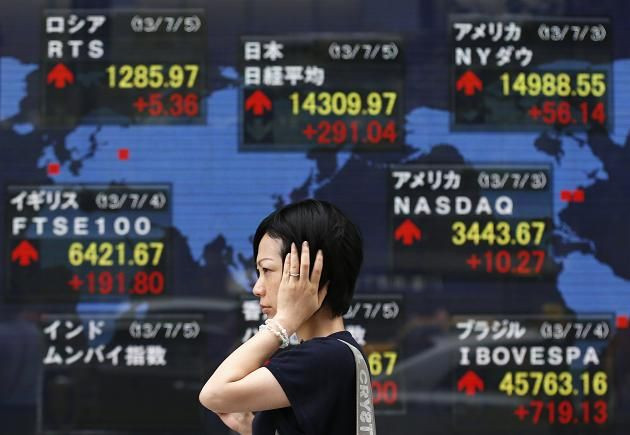Japan’s Economy Recovering Moderately But High Degree Of Uncertainty Remains, Bank Of Japan Says

The policy board of the Bank of Japan, or BoJ, said Japan’s economy is on the path to moderate recovery, supported by resilient domestic demand and a lift in overseas economies, despite lackluster performance by the manufacturing sector globally, minutes of the bank’s two-day meeting in July, released on Tuesday, showed.
But, the board added that there is a high degree of uncertainty surrounding the country's economy -- the world's third-largest -- amid the ongoing European debt crisis, a slowdown in emerging and commodity-exporting economies, and the slow pace of recovery in the U.S.
“Exports have been picking up. Business fixed investment has stopped weakening and shown some signs of picking up as corporate profits have improved. Public investment has continued to increase, and the pick-up in housing investment has become evident. Private consumption has remained resilient, assisted by the improvement in consumer sentiment,” the board said, in a statement.
However, Japan’s economic growth data for the second quarter of 2013, released on Monday, showed private residential investment, which is one of the driving factors of economic recovery, fell an annualized 1 percent when compared to the previous quarter -- its first drop since the first quarter of 2012.
The board said industrial production and business sentiment has been improving amid accommodative financial conditions, while the year-on-year rate of change in the consumer price index is currently 0 percent, with some indicators suggesting a rise in inflation expectations.
Japan clocked a weaker-than-expected 2.6 percent annualized growth in the April-June quarter, mainly supported by consumer spending, government spending and trade, making it increasingly difficult for Prime Minister Shinzo Abe’s government to implement a proposed tax hike scheduled for April 2014.
The BoJ decided to continue expanding the monetary base at an annual rate of about 60 trillion to 70 trillion yen, aimed at reversing nearly two decades of slumping prices and dismal economic growth. The bank said it will purchase Japanese government bonds to reach a target of approximately 50 trillion yen annually, with the average remaining maturity of the bond purchases set at seven years.
Some members pointed out that long-term interest rates in Japan have been stable, amid a rise in global interest rates since June 2013, adding that the BoJ’s massive government bond purchases were “significantly restraining upward pressure on long-term interest rates” by compressing risk premiums.
An official from Japan’s finance ministry said, at the meeting, that reining in deflation remained the government's top priority, adding that the government expected the BoJ to “steadily pursue quantitative and qualitative monetary easing and achieve the price stability target of 2 percent.”
Meanwhile, Japan’s core machinery orders, which gauges future capital spending by companies on production, fell by 14.3 percent in June, when compared to the previous month. On a quarterly basis, machinery orders in the April-June period rose by 3.3 percent compared with the previous quarter, data from Japan’s cabinet office showed.
Japanese media, on Tuesday, reported that Abe is mulling a cut in corporate tax, to boost lagging business investment and to counter-balance the proposed increase in sales tax.
© Copyright IBTimes 2024. All rights reserved.






















